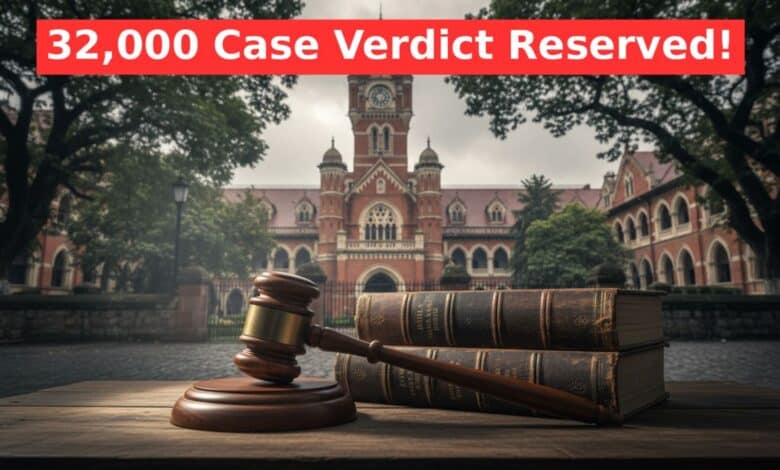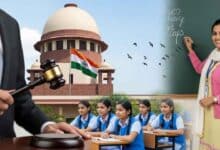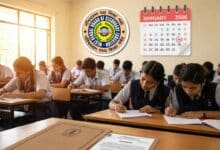32000 Case Update: 32000 Teacher Case Verdict Reserved! What Were the Key Arguments in the Hearing? Know the Details

32000 Case Update: The 21st day of the hearing in the Calcutta High Court regarding the dismissal of 32,000 primary teachers has concluded, and the court has reserved its verdict. This means the final judgement in this high-profile case will be announced at a later date. However, the arguments presented by advocates from both sides during this lengthy hearing have generated significant curiosity among job aspirants and the general public.
In today’s session, nearly all advocates were given a brief opportunity to present their arguments. The main points of discussion revolved around the CBI chargesheet, alleged irregularities in the recruitment process, and the jurisdiction for cancelling the appointments.
Key Arguments from the Hearing
Several crucial points emerged from the arguments presented by various advocates. Here are some of the notable points:
Role of the Judge and Witness Testimony: Senior Advocate Meenakshi Arora, appearing online, raised a critical question, suggesting that a judge cannot act as a prosecutor. She argued that the jobs of 32,000 teachers were cancelled based on the testimony of a mere 4.31% of the total candidates, which goes against the principles of natural justice.
The CBI Chargesheet: Arora further stated that the CBI chargesheet does not contain any direct allegations of corruption against these 32,000 teachers. She also clarified that the corruption mentioned in the context of the recruitment of 269 and a few other candidates has no connection to this larger group of 32,000.
Distinction from the Tripura Case: The Tripura teacher recruitment cancellation case was mentioned in a previous hearing. Meenakshi Arora clarified that the Tripura case was entirely different, as it involved non-compliance with NCTE guidelines and constitutional provisions, which is not the issue in the West Bengal case.
Kalyan Banerjee’s Arguments: Advocate Kalyan Banerjee submitted that all teachers who were given a relaxation in training have since completed their D.El.Ed courses by 2019. He reminded the court that the original petitioners had sought appointments for themselves, not the cancellation of others’ jobs. He also highlighted the human angle, stating that the livelihoods of nearly 1.5 lakh families are dependent on these 32,000 jobs.
Panel Publication and Other Cases: Advocate Abhratosh Majumdar argued that the list of successful candidates was published, and that itself served as the panel. He also pointed out that many of the petitioners are now employed through subsequent recruitment processes and are now terming the 2016 recruitment illegal.
Marks Allocation for Para-Teachers: Representing the para-teachers, Advocate Jayanta Mitra explained that the appearance of fractions in the experience-based marks was natural. He clarified that if a para-teacher has worked for, say, four years and three months, their experience would naturally be calculated in fractions.
With the hearing concluded, the order has been reserved. Based on the advocates’ arguments, there is a prevailing sentiment that the jobs of deserving candidates might be protected, and some of the deprived candidates might get appointments. However, the final outcome will only be known after the court delivers its judgement.

